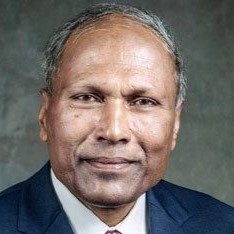Although CDMOs based in India continue to see an uptick in inquiries because of the Biosecure Act, executives have tempered expectations on how soon queries will convert to financial tailwinds for the manufacturers.
 Bhaskar Venepalli
Bhaskar VenepalliWhile pharma companies might be thinking they will move out of China in the long term, the pace at which this will happen is unlikely to be as quick as expected, CiVentiChem CEO Bhaskar Venepalli told Endpoints News in an interview.
Indian CDMOs have pointed to the bill’s grandfather clause, the sluggish biotech funding environment and the significant effort needed to move commercial projects between continents as key factors contributing to delayed decisions.
 Peter DeYoung
Peter DeYoungThe Biosecure Act is unlikely to cause a “big binary event” for Indian CDMOs, meaning that there won’t be a sudden influx of clients looking to move to India, Piramal Pharma Solutions CEO Peter DeYoung told Endpoints. While Piramal has received business inquiries for its ADC, API and injectable fill-finish manufacturing, DeYoung said it hasn’t “seen a significant number of decisions yet.”
The House is anticipated to vote on the Biosecure Act next month among other China-related bills during the so-called “China Week,” according to a Politico report.
But DeYoung added that the addition of the 2032 grandfather clause in the bill gives pharma companies more time to assess their connections to Chinese suppliers, reducing the pressure to transition to India right away.
 Jonathan Hunt
Jonathan HuntDuring its earnings call last month, Syngene’s CEO Jonathan Hunt shared the same sentiment, but noted that “it hasn’t changed the direction of travel” of pharma looking outside of China. Syngene offers CRDMO services from early-stage research to commercial production.
There have been movements in which new contracts could potentially sidestep China. Governance bodies are advising pharma companies to move away from outsourcing to China, DeYoung said, and big venture capital firms are also urging their portfolio companies away from Chinese manufacturers.
CDMO and biosimilar manufacturer Enzene Biosciences has already detected a revenue increase for its discovery-stage services, said Russell Miller, Enzene’s VP of global sales and marketing. The manufacturer also expects its revenue to increase for early-stage programs in 2025, Miller added.
Still, the slow biotech funding environment is also making pharma companies more hesitant to make contract decisions, DeYoung said. “Clients are still having to think carefully about budgets, prioritization and choices, and concurrent with that, they are evaluating their options in relation to the Biosecure Act,” he added.
Slow biotech funding has impacted Syngene’s revenue so far this year. It was down 2% to 7.9 billion rupees ($94.3 million) for the three months ending June 2024, compared to the 8.1 billion rupees ($97 million) reported in the same period last year. “It will take a while for [biotech] funding to flow through into outsourcing activities,” Hunt said in a press release.
Larger, commercial-stage projects will take even longer to move out of China. Commercial assets will take at least 18 to 24 months for pharma companies to shift continents, Miller said.
Nonetheless, even if customer decisions are delayed, it has not stopped some Indian CDMOs from expanding to meet potential future client needs. For example, CiVentiChem recently opened a second manufacturing site in Hyderabad due to “recent international developments.” The company, which offers small molecule, amino sugar and other chemical manufacturing, is hoping to pick up larger projects to fill out capacity at its new site, Venepalli said.